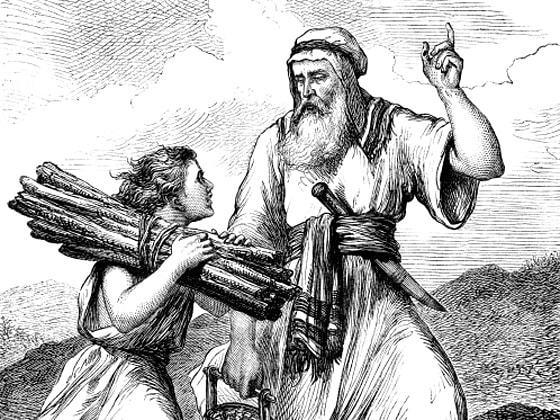By Fr. Joseph, O.P.
This question is very clever and touches the essence of biblical inspiration. It is also a question that I “worked” on a lot in my classes and gave many conferences about it, especially in my retreats for priests. All this to say that many faithful are troubled by certain passages of the Bible and find contradictions, either within the Bible or between the Bible and the Church’s teaching. I will mention a few of the principles that help to understand the problem of violent passages in the Bible. I will avoid commenting on particular passages; instead, here are few principles:
1. When God inspires the biblical scribe, he does not disrespect the human nature or the human conditions. On the contrary. At the time of Abraham for example (34-35 centuries ago?) children were considered the property of their parents and child sacrifice in one of the two major religions in the middle-east, the Babylonian religion, was acceptable. In other words, the child was at the disposal of his father. Therefore Abraham did not object when he was asked to sacrifice his son Isaac (Gen 22). At that time in history, the life of a child had no recognized value. In contrast, fifteen centuries or so later, in Luke 18:17, children become the role model of faith and the recipient par excellence of the Kingdom of God. 2. Human conditions change. Their modification has consequences on the writing of the Bible. For example, the condition of slavery was considered positive in a poor society where the fundamental problem was having daily food and surviving. The slave could be sure that his master would secure for him and his family food and protection. By contrast, in modern society where the fundamental problem is human dignity and equality between individuals (not any more having daily food and protection), slavery has become intolerable. If you apply that to the Virgin Mary who in the Magnificat says: “I am the slave (often translated by “servant”) of the Lord” (see Lk 1:38), she is saying that the Lord is the One who secures her survival and her protection. 3. In the Catholic Church, we believe that Inspiration is continued, after the Bible, through Tradition and the Magisterium. Between the child that has no human value (see Gn 22) and the child role model of faith (see Luke 18) and the twentieth-century Church teaching Humanae Vitae there is no contradiction. Rather, there has been development in human conditions and our understanding of human nature with its inherent dignity. Thanks to his mercy and grace, God had used human beings in different stages of their history and self-understanding to convey the message of salvation. Comments are closed.
|
Looking for a way to stay up-to-date with our various happenings?
Check here often or sign up for a feed! Archives
July 2024
Categories |
|
6543 Miami Ave Cincinnati, OH 45243
Phone: (513) 561-5954 | Fax: (513) 561-5184
Parish Office Hours: Mon.–Fri., 8:30 a.m.–5 p.m. |


 RSS Feed
RSS Feed


